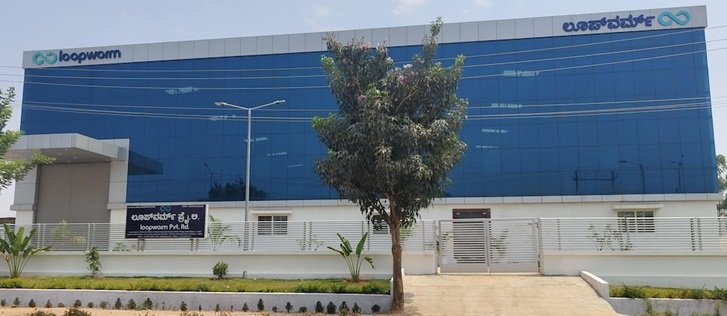Loopworm secures EU TRACES Certification for silkworm pupae-derived products
Prestigious EU TRACES certification for its Silkworm Pupae-derived products opens door to European market.
Loopworm, a pioneering leader in sustainable insect-based nutrition, announced that it has secured the prestigious EU TRACES certification for its Silkworm Pupae-derived products for both pet and animal nutrition. With approval number CAPEXIL/SR/PAC/ABP-PET/2425/402, Loopworm is now fully authorised to supply its innovative, sustainable ingredients to the European Union market.
This milestone positions Loopworm, which operates a GMP+, ISO 22000, and HACCP-certified facility with a 6,000 metric tonnes per annum capacity, as a key player in the EU market for sustainable protein sources. The certification process, facilitated by the expert guidance of DGFT officials, AQCS Bangalore, and CAPEXIL Chennai, was completed efficiently within just a few months.
European Expansion: A Strategic Step Forward
Co-founder & CEO, Ankit Alok Bagaria, expressed his excitement: “Receiving the EU TRACES certification is a significant milestone validating our commitment to quality and compliance to international standards. Europe is an exceptional market for sustainable, high-quality ingredients, and we are eager to meet the growing demand for sustainable nutrition in pet and animal feed.”
Since the commercial launch of Loopworm’s LoopFactory in April 2024, the company has already been supplying multiple truckloads of its protein and fat products monthly, primarily to the Asian aquaculture market. These products have demonstrated significant benefits in shrimp feed, particularly in improving feed palatability and growth rates.
A Game-Changer in Sustainable Nutrition
Loopworm’s silkworm pupae are leaf-fed, reared in ambient, climate-friendly conditions, making them a sustainable alternative to conventional feed ingredients. The resulting products are nutrient-dense, featuring proteins rich in essential amino acids like Methionine, Lysine, Threonine, and Arginine, along with vital trace minerals like Selenium.
A key differentiator for Loopworm is its ability to overcome the challenges that have historically hindered the insect protein industry—namely, cost efficiency, scalability, and consistent product quality. “We have cracked the formula to deliver on all three fronts,” said Ankit.
Future Innovations on the Horizon
Beyond its current offerings, Loopworm is working on expanding its portfolio to include insect-derived palatants, flavor enhancers, and functional products, which are already pilot-scale optimized. One promising area of exploration is the application of silkworm-derived biomolecules in anti-diabetic and anti-obesity formulations for pets.
Furthermore, Loopworm’s R&D team is developing a novel recombinant protein platform to produce high-value animal therapeutics, biologicals, and diagnostics at a fraction of the cost traditionally required. This groundbreaking technology aims to revolutionize the production of complex biomolecules.
Ankit concluded, “We are thrilled to enter the European market and are already in discussions with multiple pet food companies eager to integrate our products into their formulations. While we’re here to learn from our customers, we’re equally committed to educating them about the unique benefits of our sustainable products.”
Prestigious EU TRACES certification for its Silkworm








